That Super Bowl guacamole you're eating probably had a risky trip through cartel territory
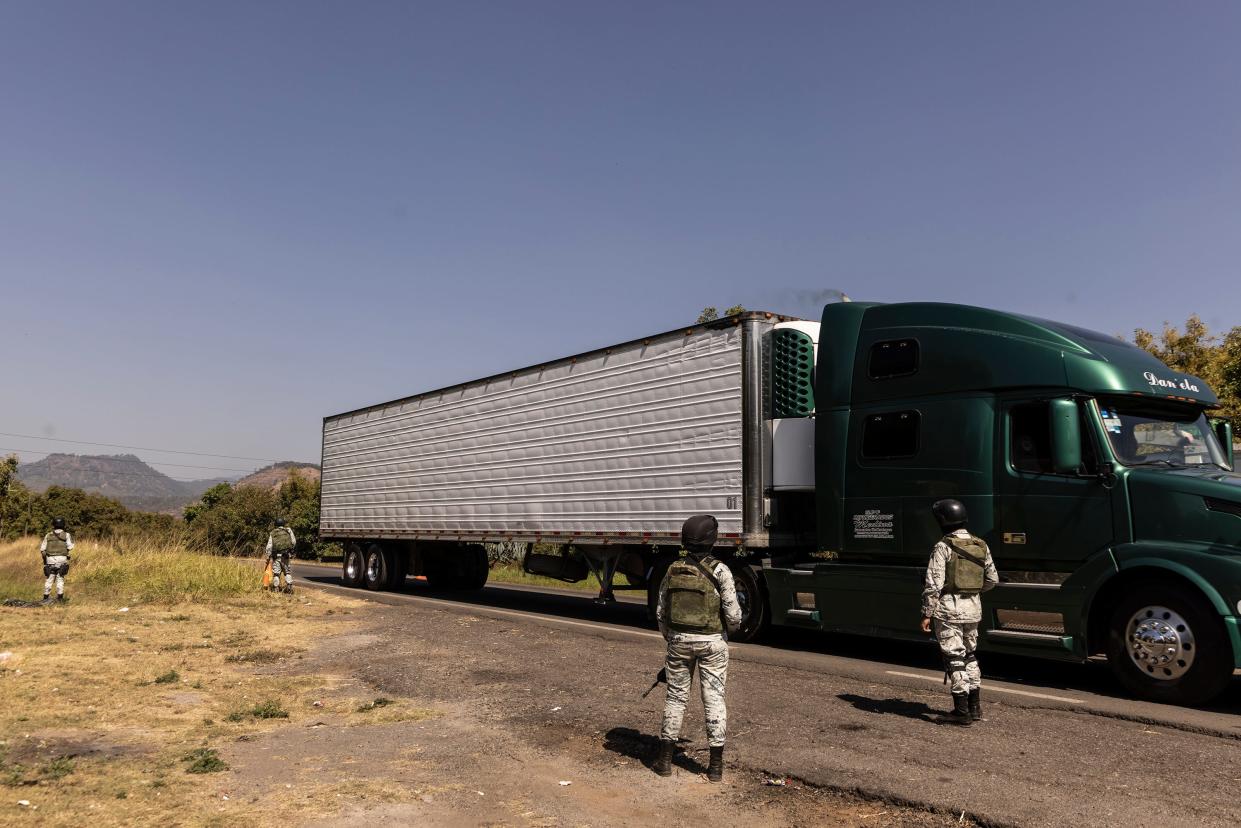
URUAPAN, Mexico ― Abraham, a truck driver in Santa Ana Zirosto, waited for his police escort to Uruapan, about an hour away. He was hauling 16,000 pounds of avocados, set to arrive in the United States just days before the Super Bowl.
“They escort us, so we don’t get robbed,” Abraham explained. “It's extremely dangerous.”
He spoke from experience. A year ago, he lost his truck and its tons of avocados after being stopped by robbers.
Nowadays, about 100 million pounds of avocados are regularly consumed in the U.S. on Super Bowl Sunday, but the journey from the orchard to the guacamole bowl can be a perilous one.
“Sometimes, the same people from small towns rob you,” Abraham said. He requested that his full name not be disclosed out of fear of retaliation in Mexico by drug gangs and thieves.
He spoke of the risks of working in a place divided and controlled by two different criminal groups, the local Los Viagras cartel and the powerful, regional Jalisco New Generation Cartel or CJNG.
More:A ruthless Mexican drug lord’s empire is devastating families with its grip on small-town USA
“Our bosses have to pay a fee to the cartels, so they can work properly,” he said. “If they don’t pay, they will get killed.”
On this day, Abraham’s police escort didn’t show, so he and five other drivers, their trucks also brimming with avocados bound for the north, started the journey together.
“Sometimes, we’re afraid of crime, but we need to keep working,” he said.
The trucks arrived safely in Uruapan, in the state of Michoacán, the region that produces 80% of Mexico’s avocados and more avocados than anywhere in the world.
Cartels impose ‘war tax’ on avocado farming
“Honestly, it's something delicate, but like anywhere else, you have to pay to be able to work,” said the owner of a packing company located in Uruapan, who didn’t want to be identified for fear of retaliation from drug cartels for speaking to a reporter with The Courier Journal.
The owner said some growers and packing companies pay 1,000 Mexican pesos (around 50 U.S. dollars) per hectare monthly to criminal groups.
The massive worldwide demand for avocados has turned the business into a very profitable one in Mexico, but it also turned the “green gold” into a target for multiple layers of organized crime seeking to control the trade.
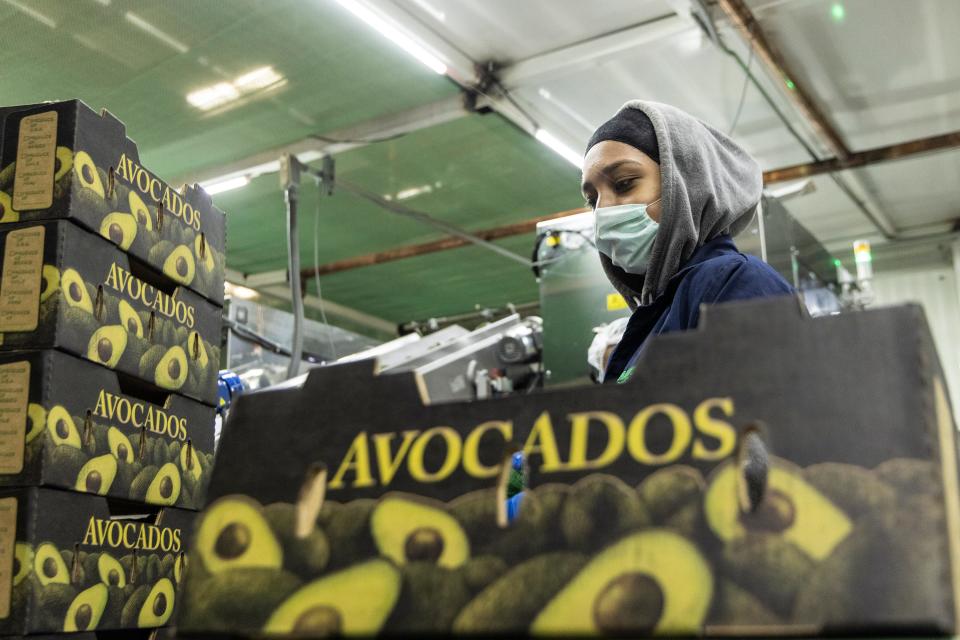
“For a long time, organized crime groups in this war with each other have been diversifying their criminal portfolio,” said David Saucedo, a Mexico-based security analyst.
“They (cartels) are engaged in kidnapping and extortion, and they quickly identified some very lucrative activities, such as controlling and collecting extortion fees from avocado producers.
“Many agricultural producers, having no other alternative, began to pay this commission, this war tax that the cartels imposed on them,” Saucedo explained.
More:Outbreak of Mexican cartel violence targeting innocents raises worries of what’s to come
In February 2022, the U.S. halted avocado imports from Mexico over an anonymous threat made to an American agricultural inspector in Michoacán.
According to Mexico’s department of agriculture, the worker received a threatening message on his cellphone. After talks between the two governments, the operations resumed within days.
The packing company owner said the situation is complicated with these criminal groups, but emphasized that sometimes it is even worse with the government.
“The police treat you really bad, and to be honest, the other armed men are more polite. During the checkpoints, they even say ‘hi’ and talk to you nicely,” the owner said.
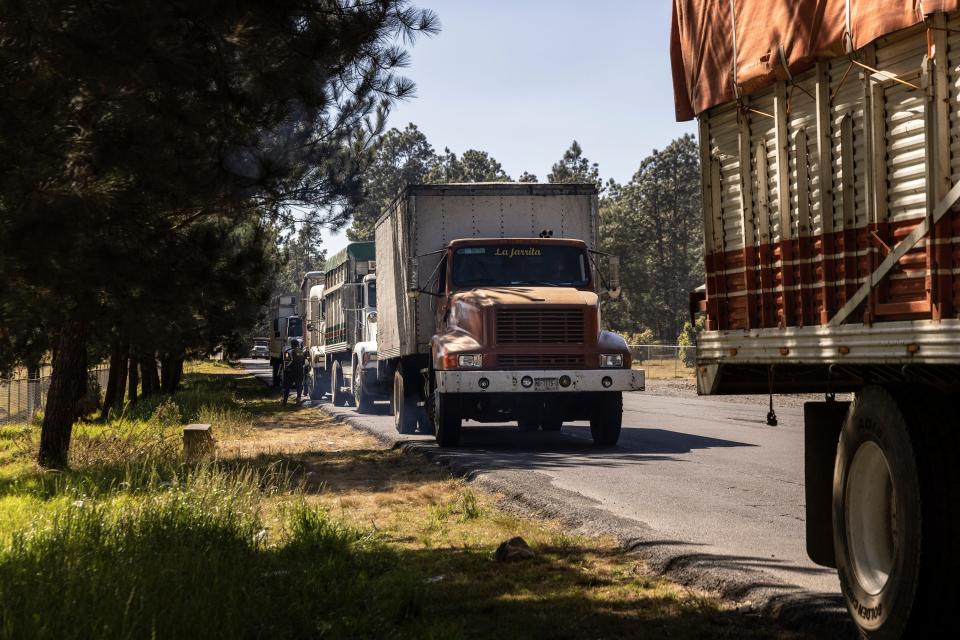
More:Will El Chapo son's arrest slow export of drugs to US? Next steps crucial, experts say
‘You have to pay … you can’t say ‘no’’
In Uruapan, residents know what is happening, but nobody talks about it.
“Unfortunately, it is due to the normalization of violence in Michoacán,” Saucedo said.
There are entire areas of the state where there is no presence of the Mexican government, and public security forces are at times in collusion with organized crime.
“Hence, many avocado producers have been making payments to organized crime groups for practically more than 10 years in order to carry out their commercial activity,” he said.
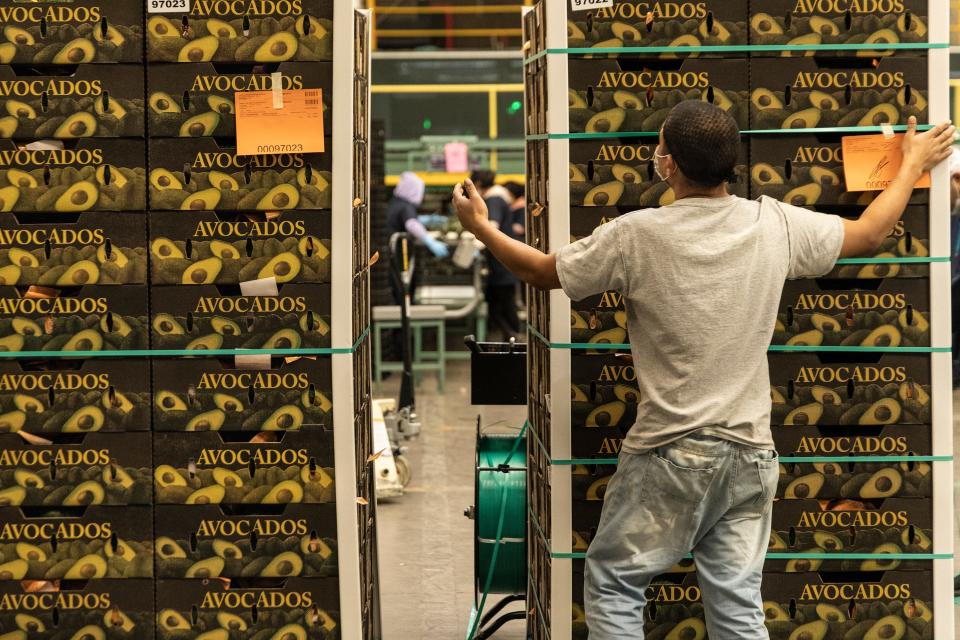
The owner of another packing company in Uruapan, who spoke to The Courier Journal anonymously, said most of the time they are in the middle of the turf war between two cartels.
“Imagine you're in the middle of two groups. It's very complicated. You have to pay both of them, and you can't say ‘no.’
“They are going to get money from everywhere, and they come with the offer of ‘we will protect you,’ but protect me from what? You are the criminal,” the owner said.
More:With drug cartel violence, is it safe to travel to Mexico? Security experts weigh in
Avocado pride
The U.S. ended its ban on imports of Mexican avocados in 1997. Regulators put the ban in place several decades earlier over concerns about pests invading U.S. orchards.
As a result, Mexico’s avocado business flourished, and it has been registering record export numbers ever since.
In January, the marketing organization “Avocados from Mexico” announced the kick-off for the first shipment of avocados sent to the U.S. in anticipation of Super Bowl LVII.
“Avocados from Mexico will land in the American country in February, seeking to exceed the shipments of 2022 with more than 100,000 tons of avocado,” the organization said in a statement.
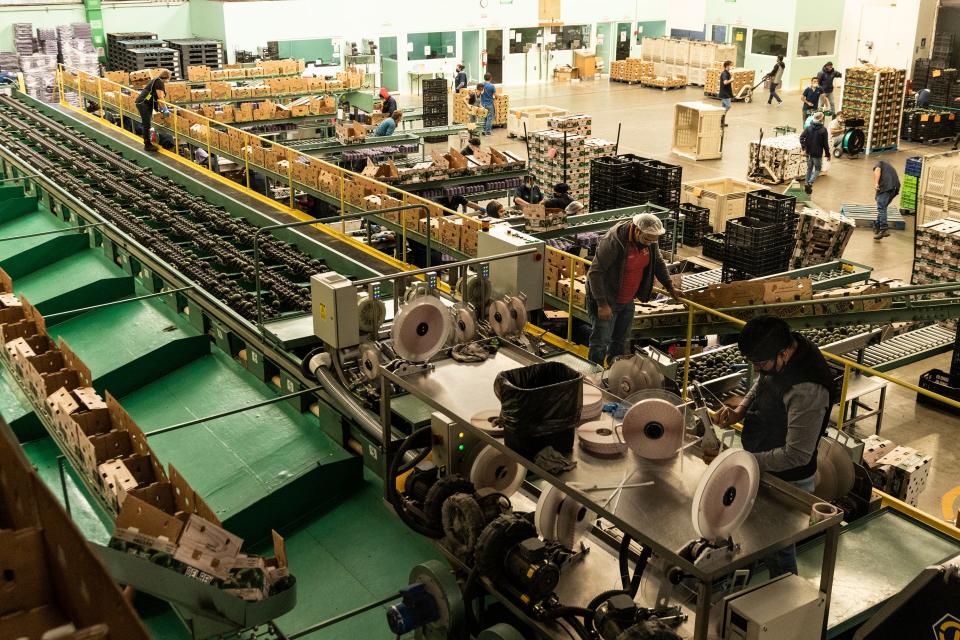
Juan Carlos Ruiz, manager of Brandon’s Fresh avocado packing company based in Uruapan, told The Courier Journal his team is fully committed to the Super Bowl season.
“We always (stay) here 24/7, if needed. This month, we send more than 170 tons to the Super Bowl for this very famous event, in which we are a fundamental part, being one of the largest packing companies in Michoacán,” Ruiz said.
“We are exporting around 25 to 30 trucks per day to the U.S. only, so this is a pride, a pride to participate in this great event.”
The security problem in Michoacán
“Every time there is a Super Bowl in the U.S., the debate around the Mexican avocados resumes,” Saucedo said.
During the ban on avocados in early 2022, Mexico’s president Andrés Manuel López Obrador said the suspension was part of a conspiracy against his country over politics and economic interest.
“In all of this, there is also a lot of political interest. They don’t want Mexican avocados to get into the U.S. because it would rule due to its quality,” López Obrador said.
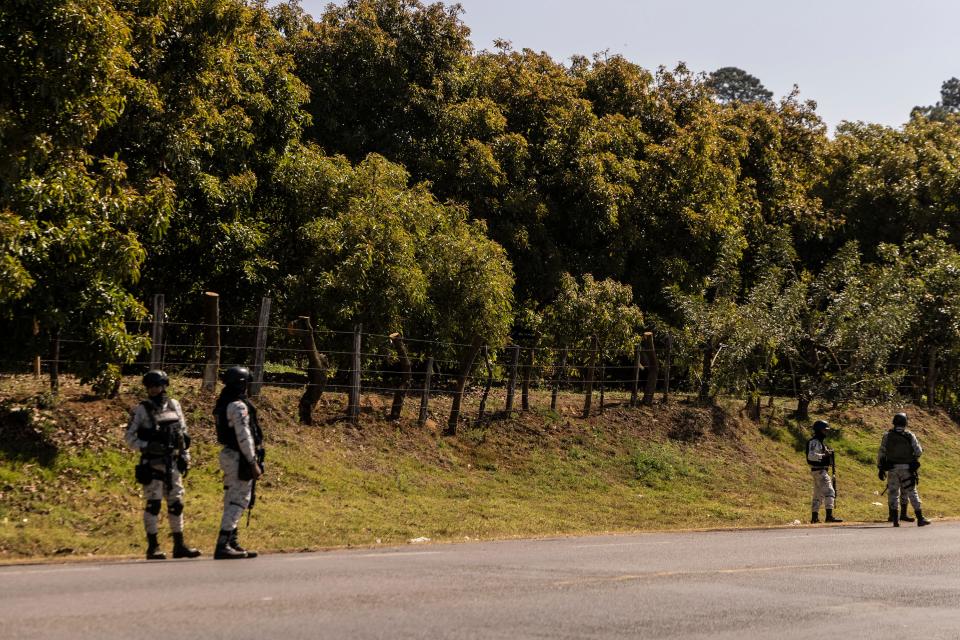
Saucedo believes there are some honest voices coming from the U.S. that are concerned about the security situation in Michoacán, but there are others that seek to stop the import of avocados from Mexico in favor of local growers.
The cartel problem in Michoacán has continued for decades, leading to the creation of self-defense groups and to growers and packers giving in to the extortion of criminal groups.
More:City hall massacre: Local Mexican leaders risk lives to stay in office in cartel territory
“There has been no president in Mexico who has made the real determination to face the situation in Michoacán because it would imply a military occupation and the death of many civilians,” Saucedo said.
“I believe that there should be some kind of U.S. intervention in Michoacán, but not by blocking avocado exports ― rather, strengthening the participation of the (U.S. Drug Enforcement Agency) in the fight against organized crime groups in Michoacán.”
Cristopher Rogel Blanquet is a journalist based in Mexico City. Karol Suárez is a Venezuela-born journalist based out of Mexico City. They are contributors to The Courier Journal. Follow Suárez on Twitter at @KarolSuarez_.
This article originally appeared on USA TODAY: Avocadoes are big business for surprising group: Mexican drug cartels

